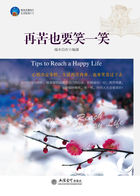So if she mourned her lack of company, it was only because she would have liked to have someone to teach her to swim. Other than that, being on her own was wonderful. How right Anne had been! All her life there had been people in the house. To have no one was such a relief, so utterly peaceful. She wasn't lonely at all; she didn't miss Anne or Luddie or Justine or Luke, and for the first time in three years she didn't yearn for Drogheda. Old Rob never disturbed her solitude, just chugged far enough down the road each sunset to make sure her friendly wave from the veranda wasn't a signal of distress, turned the car and puttered off again, his surprisingly pretty Missus grimly riding shotgun. Once he phoned her to say he was taking the other couple in residence out in his glass-bottomed boat, and would she like to come along? It was like having a ticket of admission to a whole new planet, peering through the glass down into that teeming, exquisitely fragile world, where delicate forms were buoyed and bolstered by the loving intimacy of water. Live coral, she discovered, wasn't garishly hued from dyes the way it was in the souvenir counter of the store. It was soft pink or beige or blue-grey, and around every knob and branch wavered a marvelous rainbow of color, like a visible aura. Great anemones twelve inches wide fluttered fringes of blue or red or orange or purple tentacles; white fluted clams as big as rocks beckoned unwary explorers to take a look inside with tantalizing glimpses of colorful, restless things through feathery lips; red lace fans swayed in water winds; bright-green ribbons of weed danced loose and drifting. Not one of the four in the boat would have been in the least surprised to see a mermaid: a gleam of polished breast, a twisting glitter of tail, lazily spinning clouds of hair, an alluring smile taunting the siren's spell to sailors. But the fish! Like living jewels they darted in thousands upon thousands, round like Chinese lanterns, slender like bullets, raimented in colors which glowed with life and the light-splitting quality water imparts, some on fire with scales of gold and scarlet, some cool and silvery blue, some swimming rag bags gaudier than parrots. There were needle-nosed garfish, pug-nosed toadfish, fanged barracuda, a cavernous-mawed grouper lurking half seen in a grotto, and once a sleek grey nurse shark which seemed to take forever to pass silently beneath them.
"But don't worry," said Rob. "We're too far south here for sea wasps, so if anything on the Reef is going to kill you, it's most likely to be a stonefish. Never go walking on the coral without your shoes."
Yes, Meggie was glad she went. But she didn't yearn to go again, or make friends with the couple Rob brought along. She immersed herself in the sea, and walked, and lay in the sun. Curiously enough, she didn't even miss having books to read, for there always seemed to be something interesting to watch. She had taken Rob's advice and stopped wearing clothes. At first she had tended to behave like a rabbit catching whiffs of dingo on the breeze, bolting for cover if a twig cracked or a coconut fell like a cannonball from a palm. But after several days of patent solitude she really began to feel no one would come near her, that indeed it was as Rob said, a completely private domain. Shyness was wasted. And walking the tracks, lying in the sand, paddling in that warm salty water, she began to feel like an animal born and brought up in a cage, suddenly let loose in a gentle, sunny, spacious and welcoming world.
Away from Fee, her brothers, Luke, the unsparing, unthinking domination of her whole life, Meggie discovered pure leisure; a whole kaleidoscope of thought patterns wove and unwove novel designs in her mind. For the first time in her life she wasn't keeping her conscious self absorbed in work thoughts of one description or another. Surprised, she realized that keeping physically busy is the most effective blockade against totally mental activity human beings can erect. .
Years ago Father Ralph had asked her what she thought about, and she had answered: Daddy and Mum, Bob, Jack, Hughie, Stu, the little boys, Frank, Drogheda, the house, work, the rainfall. She hadn't said him, but he was at the top of the list, always. Now add to those Justine, Luke, Luddie and Anne, the cane, homesickness, the rainfall. And always, of course, the lifesaving release she found in books. But it had all come and gone in such tangled, unrelated clumps and chains; no opportunity, no training to enable her to sit down quietly and think out who exactly was Meggie Cleary, Meggie O'neill? What did she want? What did she think she was put on this earth for? She mourned the lack of training, for that was an omission no amount of time on her own could ever rectify. However, here was the time, the peace, the laziness of idle physical well-being; she could lie on the sand and try. Well, there was Ralph. A wry, despairing laugh. Not a good place to start, but in a sense Ralph was like God; everything began and ended with him. Since the day he had knelt in the sunset dust of the Gilly station yard to take her between his hands, there had been Ralph, and though she never saw him again as long as she lived, it seemed likely that her last thought this side of the grave would be of him. How frightening, that one person could mean so much, so many things.
What had she said to Anne? That her wants and needs were quite ordinary-a husband, children, a home of her own. Someone to love. It didn't seem much to ask; after all, most women had the lot. But how many of the women who had them were truly content? Meggie thought she would be, because for her they were so hard to come by.















